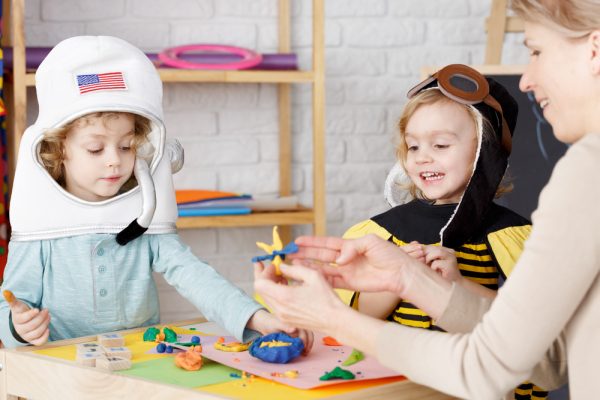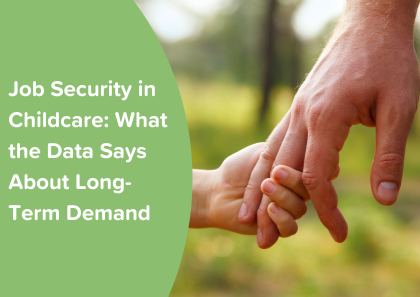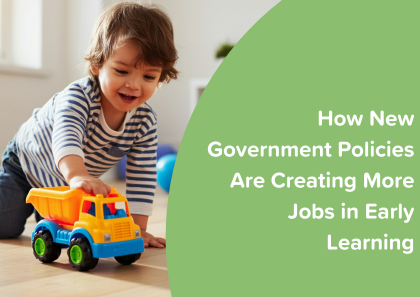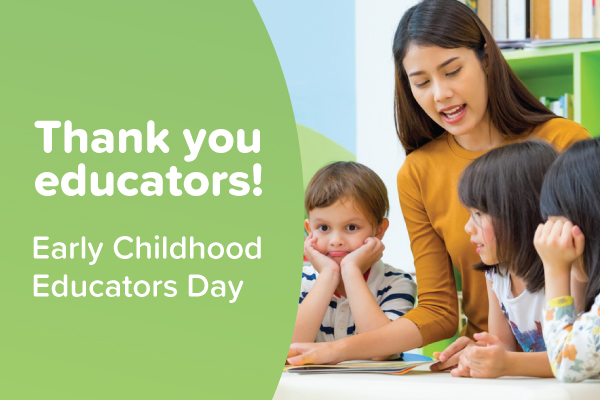Kindergarten usually refers to the year of education that leads up to commencing primary school. As a kindergarten teacher assistant, you’ll work with children who are aged between 3 and 5-years old.
Kindergarten, kindy, pre-school, 3 or 4-year old kinder — whatever you know it as, just about everyone has fond memories of being in kindergarten! Painting, stringing beads, drawing, singing — kindy meant lots of fun. As a kindergarten teacher assistant you get to be a part of making memories with children every day!
More importantly, you will help to instil the educational cornerstones of literacy and numeracy. Research shows that children who receive education such as basic vocabulary and maths skills early in life, starting in preschool, are more likely to develop life-long skills that help them do well in school for years to come!

What does a kindergarten teacher assistant do day-to-day?
Kindergarten assistants work alongside a kindergarten teacher, delivering play-based learning experiences to children.
Kindergarten is generally a little more structured than childcare, with a focus on school readiness. As such, part of your role will be to help children as they tackle the basics of numeracy and literacy to prepare them for primary school.
You’ll support children as they connect with one another and the world around them, gaining the independence required to head off into their years of formal education. Seeing children achieve milestones like learning to write their own name is among many special parts of being a kindergarten assistant.
What are the qualities of a typical kindergarten assistant?
Kindergarten teacher assistants have a positive and enthusiastic personality. They are also resourceful, observant, and creative in finding new ways to help children learn.
Below are some of the skills and qualities required by those who choose this profession.
Creativity – to make daily tasks enjoyable for children to help them to learn new skills
Resourcefulness – to find interesting ways to help children learn and being able to explain information in a way that matches a child’s learning style
Communication skills – this job requires communicating with people of all different ages, from parents and children to colleagues.
Patience – to help children of with a range of developmental backgrounds can be challenging and requires patience and to remain calm and positive
Attention to detail – kindergarten teacher assistants must be observant to spot when a child is having difficulty with something or needs assistance
Getting qualified to work as a kindergarten assistant
The Certificate III in Early Childhood Education and Care (CHC30121) or a Diploma of Early Childhood Education and Care (CHC50125) will get you the qualifications you need to become a kindergarten assistant. You’ll gain real world experience too with practical work placement that ensures you graduate with confidence.
Our delivery of these qualifications at Practical Outcomes is highly regarded throughout the industry. Let’s have a chat about your career goals and help you get to where you want to be — you could be working as a kindergarten assistant or in a variety of childcare careers in as little as 12 months!
Contact us today to discuss your early childhood education and care career options.



